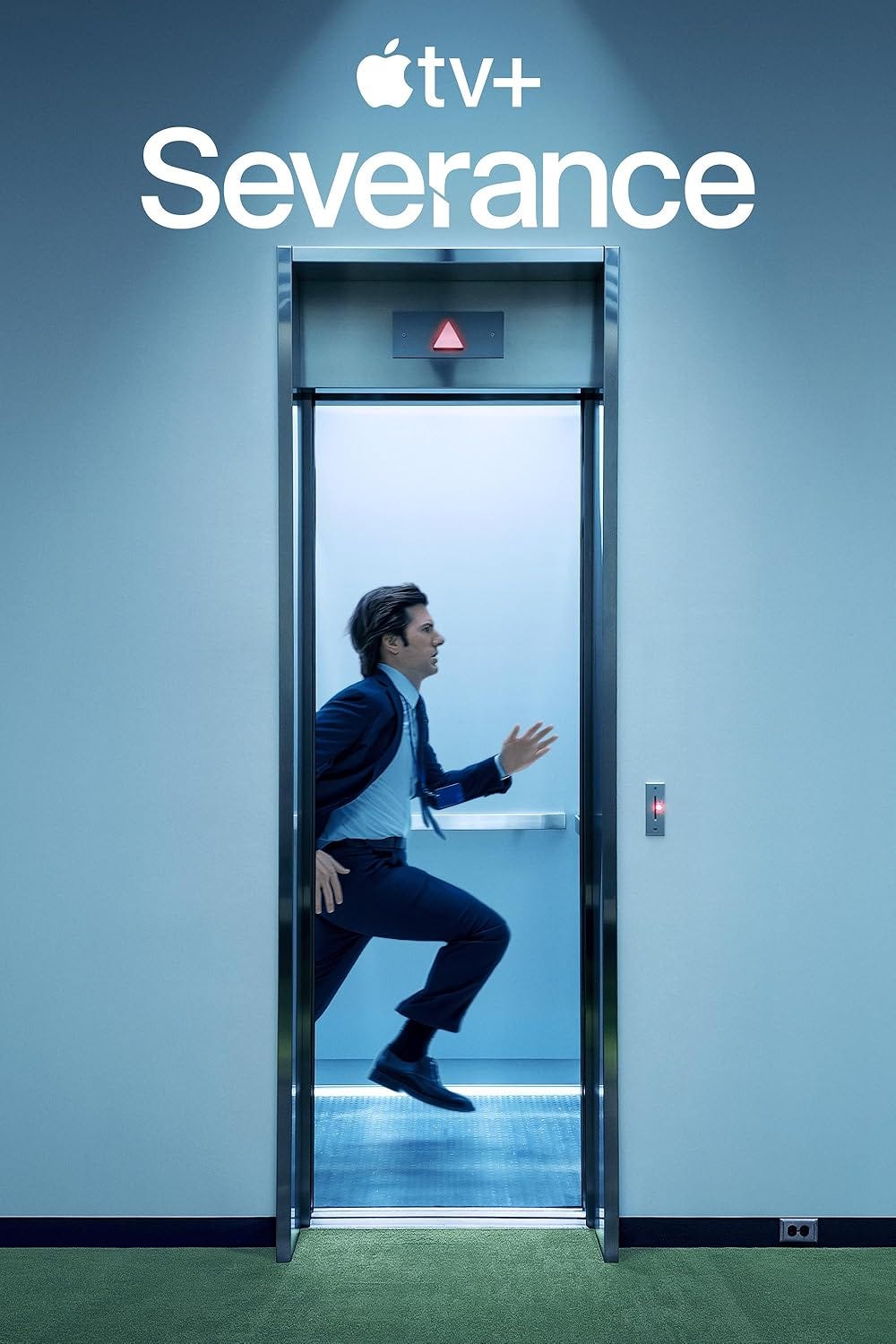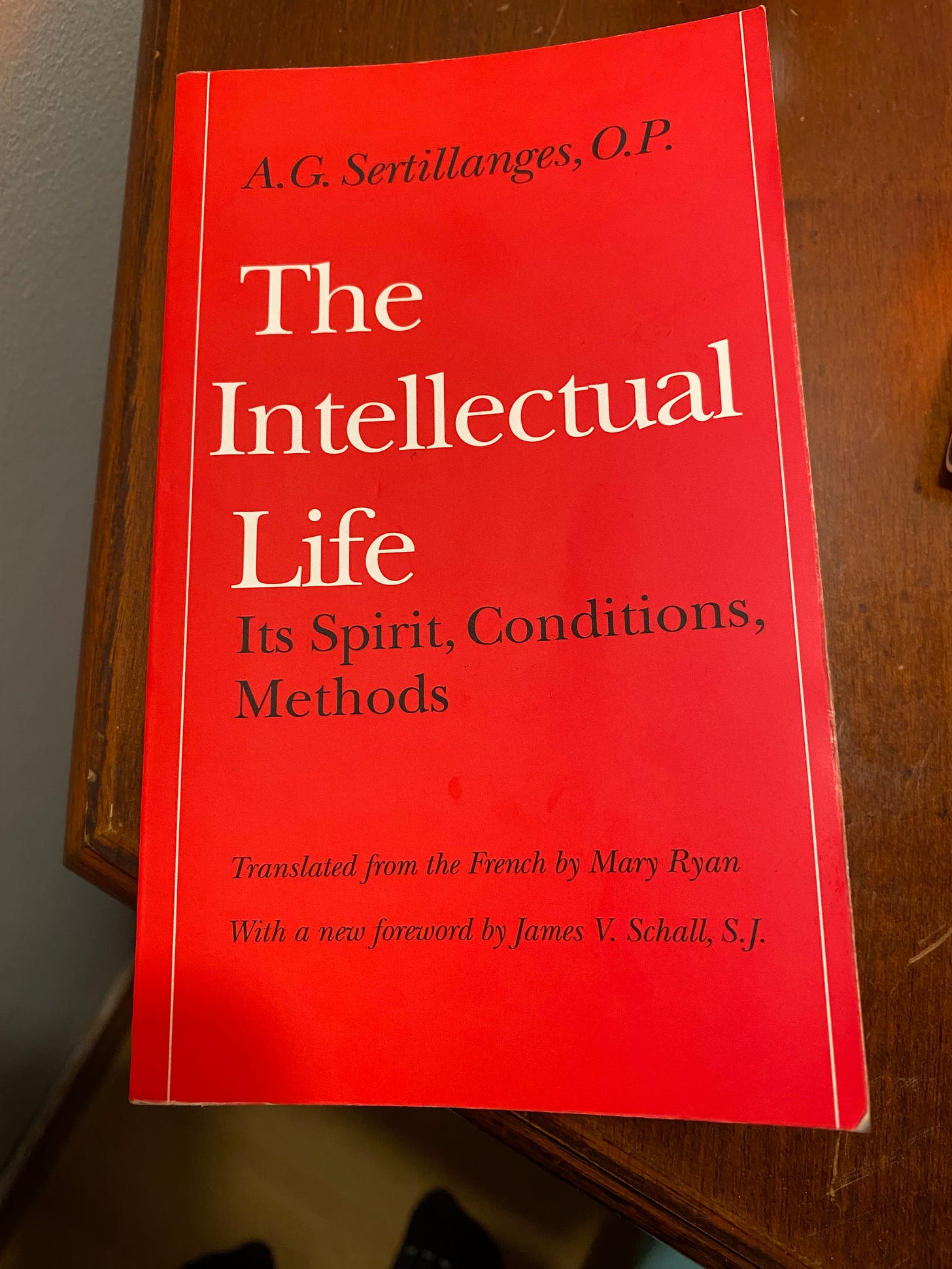Looting for Ideas 14/02/2025
Severance, Index Cards, The Intellectual Life, and the Rest is History
I like looting ideas from various places and people. Here is my little round up from the past week.
The Main Ideas
Something I Watched
The show is amazing. Just watch it. I was unsure after Season 1 Episode 1, but in Episode 2 everything clicked. And what a click it was.
I also felt unsure after Season 2 Episode 1, but in Episode 2 everything clicked again. And it is just as brilliant as the first season.
The first episode of each season throws you off balance, establishes the weirdness of everything. And once you are in that weird space, everything weird that happen just flows together and pushes you downstream towards some as yet unrevealed inevitability.
Seriously, watch it. I know this is not an idea to be looted. I will write something more substantive at some point, I promise, but not now. I am too excited and wrapped up in it to analyze it.
Something(s) I Read
The Five Tab System: Armchair Method , by Sam Granger at Armchair Notes
My note taking is pretty scattershot. I underline things, scribble in the margins, occasionally jot things down on pieces of paper or somewhere in Notion or Obsidian. If I write something referring back to that quote soon after reading I can usually find the quotes, even if I have not underlined them, by recollection of where on the page the quote sits. Sometimes I will flick through whole books multiple times, knowing the quote I want is at the end of a paragraph three quarters down the left page. But give it a few days, or weeks, or months, and I cannot do that anymore.
Sam’s index card suggestion solves that problem, and I am now excited to go buy a packet of index cards.
There are some other good tips in there as well, so go check it out.
The Intellectual Life: Its Spirit, Conditions, Methods, by A.G. Sertillanges, O.P., translated by Mary Ryan
The second read was as good as the first. Re-reading this helped me make the decision to make exploring the Neo-Scholastics my intellectual labor. It prompted my rebrand from Thinking Grounds to Neo-Scholastic Playground. That rebrand is still a work in progress, but I am happy to be doing the work. The Intellectual Life has been good for my mind and for my soul.
This quote sums it up well:
Each one should watch himself, note what helps him, keep at hand together his remedies for the sicknesses of the soul and not hesitate to go back and back to the same cordial or the same antidote until these have utterly lost their efficacy. (The Intellectual Life, p. 155)
Sertillanges is talking about returning to favorite authors, favorite pages, favorite quotes. By returning to the works that once inspired us we can shake off our malaise and melancholy and reignite the flames that spurred us to do the things we love. The Intellectual Life is certainly one of my cordials.
Rather than write up a review of the book, I will direct you to my friend
post, The Catholic Productivity Book You’ve Never Heard Of. I think it gives a good, brief introduction to the book which is more than sufficient to inspire someone to read it.If you find reading the Neo-Scholastics intimidating, give this book a try. It shows that not all Neo-Scholastics are difficult to read.
Something I Heard
The Rest Is History - Emperors of Rome series (episodes 534-536)
This is an amazing history podcast. I tell everyone I know who has an interest in history to check it out. It is funny, engaging, and extremely well researched. Often I find myself with a strong desire to learn about something I had literally never thought about before.
That does not apply to this series, given my unrepentant love of Rome.
Tom Holland, one of the two podcasters, is the reason my interest in Rome outgrew a juvenile fad and blossomed into a lifelong obsession. The occasion for the Emperors of Rome series is that Tom Holland has just published a new translation of The Lives of the Caesars by Suetonius. It is on my to-buy list.
A Final Thought
In the past week, I have had several conversations (well, one conversation and a few comment conversations) about nature. The word is often used in a loose way, generally opposing “human stuff” from “the natural world.” This has convinced me it would be a good thing to write up a piece on the Aristotelian-Thomistic conception of nature, which sounds very fancy but actually just reflects common sense and the way we actually understand things.
I will try to dig out my Manual of Neo-Scholastic Philosophy this weekend for that. It is currently in a box in the shed, and I do not know which one.
Community Questions
That’s right, I want to give this a shot and see if I can coax some of you into chatting with me.
If you have seen Severance, what do you think about it? I would be especially interested if someone had a negative opinion of it.
Do you think I am a barbarian for writing in my books? (I felt like a barbarian when I started)
Did you watch, read, or listen to anything particularly interesting this week?




Go to hel.co to see my friend Andy's whole system of productivity, healing, and mindset that's based on Sertillanges.
I'm listening to The Johnstown Flood by David McCullough. That man has never written a boring word.
I would only think you're a barbarian if you *didn't* write in your books. Jk I felt the same way when I was first told to annotate readings